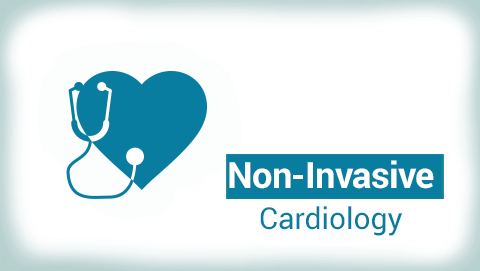STRESS ECHOCARDIOGRAPHY
Our Offerings
- Pulmonary Hypertension Clinic
- Electrocardiography (ECG or EKG)
- Cardiac biomarkers
- Echocardiography
- Transthoracic (TTE) Echocardiography
- Transesophageal echocardiogram
- Stress echocardiography
- Treadmill test
- Holter monitor (or ambulatory electrocardiography device)
- Head up Tilt table test
- Defibrillation
- CT Angiogram
- Cardiovascular magnetic resonance imaging (Cardiac MRI)
Procedure:
A resting echocardiogram is obtained prior to stress. The patient is subjected to stress in the form of exercise or chemically (usually dobutamine). After the target heart rate is achieved, `stress` echocardiogram images are obtained. The two echocardiogram images are then compared to assess for any abnormalities in wall motion of the heart.
Major Indications:
- To assess the heart`s function and structures
- To assess stress or exercise tolerance in people with known or suspected coronary artery disease (CAD)
- To further assess the degree of known heart valve disease
- To determine limits for safe exercise before one starts a Cardiac rehabilitation program and/or are recovering from a Cardiac event, such as a heart attack (myocardial infarction, or MI) or heart surgery
- To evaluate the Cardiac status before heart surgery





